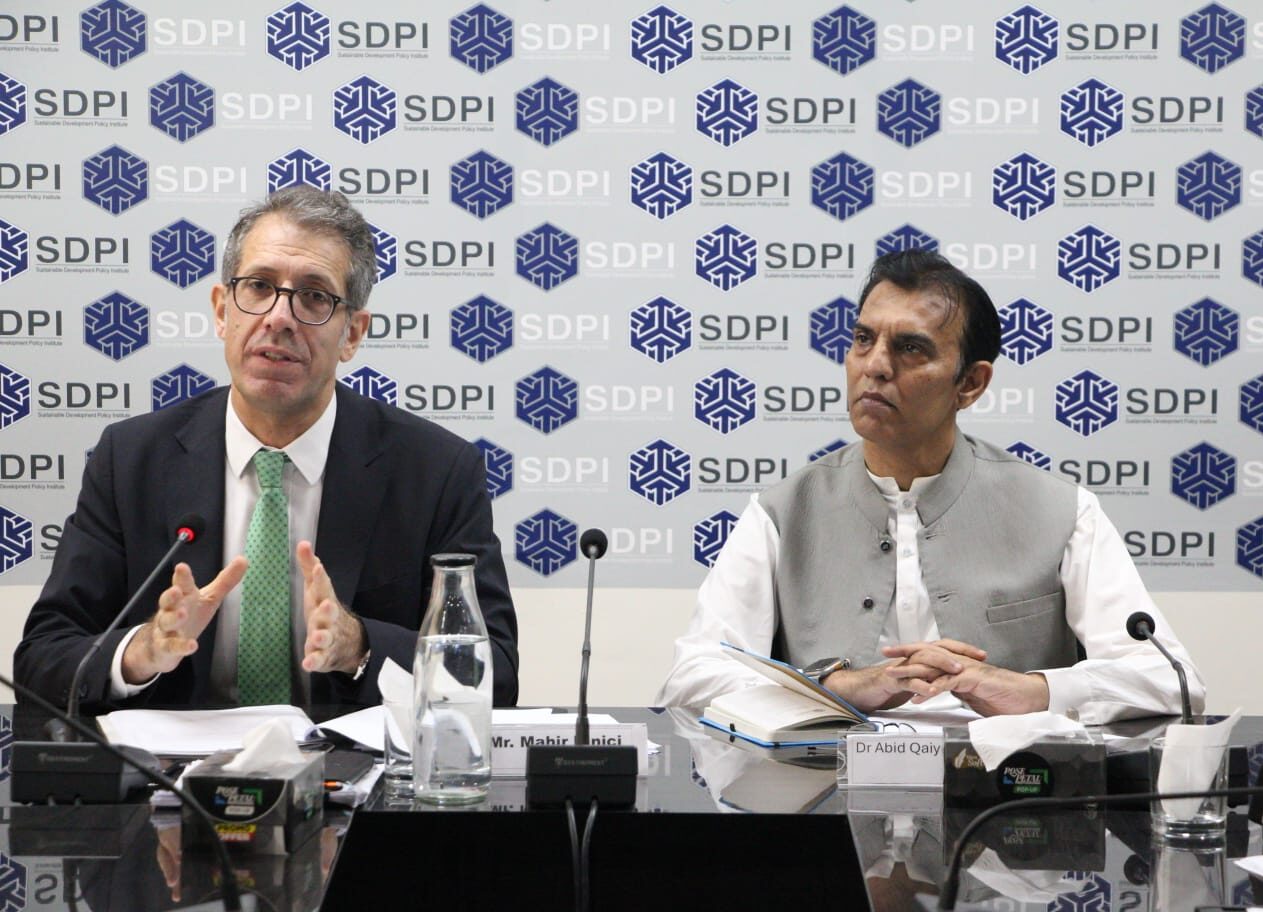ISLAMABAD: The International Monetary Fund (IMF) representative, Mahir Binici, has described the pace of Pakistan’s economic stabilization as encouraging.
Speaking at a lecture organized by the Sustainable Development Policy Institute (SDPI) in Islamabad, Mahir Binici said that the IMF considers Pakistan’s progress under the Extended Fund Facility (EFF) program to be strong, while also praising the country’s advances in environmental reforms.
Addressing economists, researchers, and policy experts at SDPI, Binici stated that growth across the Middle East, North Africa (MENA) region, and Pakistan is expected to strengthen in 2025 and beyond. However, he cautioned that “elevated trade tensions, geopolitical fragmentation, and weakening global cooperation continue to generate exceptional uncertainty and weigh on the global economic outlook,” underlining the urgent need for prudent and forward-looking policy actions.
He noted that although Pakistan’s performance under the EFF has remained solid, structural reforms are essential for ensuring economic sustainability.
The IMF representative also emphasized the importance of making the tax system fairer, improving the business environment, and promoting private-sector-led investment as key to Pakistan’s long-term economic sustainability.
Regarding environmental reforms, he said that the support provided in this area would not only strengthen Pakistan’s climate resilience but also pave the way for green investment and help build an environmentally sustainable economy.
He also spotlighted Pakistan’s progress on climate-related reforms under the IMF’s Resilience and Sustainability Facility (RSF). According to Binici, the RSF is designed to help countries like Pakistan bolster resilience to climate-related vulnerabilities and meet international climate commitments.
He mentioned that the key areas of reform under the RSF included enhancing public investment planning, promoting efficient and sustainable use of water resources, improving institutional coordination for disaster preparedness and financing, expanding the availability and transparency of climate-related data.
Binici stressed that “support through the RSF will not only strengthen Pakistan’s climate resilience but also help unlock green investments and foster a more climate-conscious economic trajectory.”
Dr Abid Qaiyum Suleri, Executive Director SDPI welcomed the IMF representative’s outreach, noting the importance of informed economic dialogue and multilateral cooperation in Pakistan’s journey toward sustainable development.
The lecture concluded with an interactive discussion on fiscal and monetary policy frameworks, external buffers, and the role of international institutions in fostering inclusive growth.


Comments are closed.